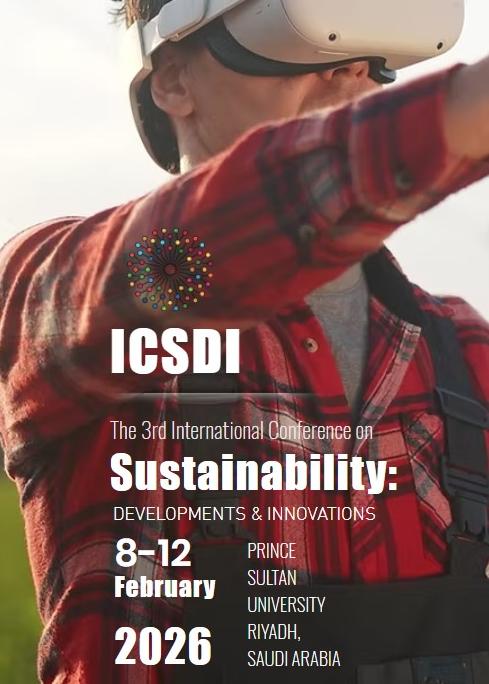BIAS - Bias in Information, Algorithms, and Systems
BIAS 2018
- URL: http://ir.shef.ac.uk/bias
- Event Date: 2018-03-25 ~ 2018-03-25
- Abstract Submission Date: 2018-01-10
- Submission Date: 2018-01-20
- Location: Sheffield, United Kingdom
More than ever before, information, algorithms and systems have the potential to influence and shape our experiences and views. With increased access to digital media and the ubiquity of data and data-driven processes in all areas of life, an awareness and understanding of areas, such as algorithmic accountability, transparency, governance and bias, are becoming increasingly important. Recent cases in the news and media have highlighted the wider societal effects of data and algorithms requiring we pay it more attention.
The BIAS workshop will bring together researchers from different disciplines who are interested in analysing and tackling bias within their discipline, arising from the data, algorithms and methods they use. The theme of the workshop, bias in information, algorithms, and systems, includes, but is not limited to, the following areas:
- Bias in sources of data and information (e.g., datasets, data production, publications, visualisations, annotations, knowledge bases)
- Bias in categorisation and representation schemes (e.g., vocabularies, standards, etc.)
- Bias in algorithms (e.g., information retrieval, recommendation, classification, etc.)
- Bias in the broader context of information and social systems (e.g., social media, search engines, social networks, crowdsourcing, etc.)
- Considerations in evaluation (e.g., to identify and avoid bias, to create unbiased test and training collections, crowdsourcing, etc.)
- Interactions between individuals, technologies and data/information
- Considerations for data governance and policy
The workshop aims to identify potential avenues for future directions around the notions of bias, algorithmic transparency and accountability, with the concrete goal of generating a collaborative proposal for publishing a position paper (e.g., in ACM SIGIR Forum) and/or the coordination of a special issue on BIAS for the journal Online Information Review. With these goals in mind, the workshop will feature a keynote talk, presentations and posters from workshop participants, and thematic discussions in small groups.
=== Submission and Publication ===
The workshop welcomes the following types of submissions:
- Extended abstracts of up to 1,500 words,
- Short research papers of up to 6 pages, and
- Full research papers of up to 12 pages.
- Submissions will be peer-reviewed by at least two members of the programme committee. - Submissions should be formatted according to Springer’s LNCS style guidelines (http://www.springer.com/gb/computer-science/lncs/conference-proceedings-guidelines) and not exceed the word/page limit. The submission is to be done via EasyChair (https://easychair.org/conferences/?conf=bias2018). All accepted submissions will be published as workshop proceedings on CEUR-WS.org (http://ceur-ws.org/). Their metadata will also be provided in BibSonomy (https://www.bibsonomy.org/) and everything will be linked on the workshop homepage, together with the program and presentation slides. At least one author of each accepted paper must register for the conference and present the paper there.
=== Organisation ===
- Dr. Jo Bates, Information School, University of Sheffield, UK
- Prof. Paul Clough, Information School, University of Sheffield, UK
- Prof. Robert Jäschke, Humboldt-Universität zu Berlin, Germany
- Prof. Jahna Otterbacher, Open University of Cyprus
The BIAS workshop will bring together researchers from different disciplines who are interested in analysing and tackling bias within their discipline, arising from the data, algorithms and methods they use. The theme of the workshop, bias in information, algorithms, and systems, includes, but is not limited to, the following areas:
- Bias in sources of data and information (e.g., datasets, data production, publications, visualisations, annotations, knowledge bases)
- Bias in categorisation and representation schemes (e.g., vocabularies, standards, etc.)
- Bias in algorithms (e.g., information retrieval, recommendation, classification, etc.)
- Bias in the broader context of information and social systems (e.g., social media, search engines, social networks, crowdsourcing, etc.)
- Considerations in evaluation (e.g., to identify and avoid bias, to create unbiased test and training collections, crowdsourcing, etc.)
- Interactions between individuals, technologies and data/information
- Considerations for data governance and policy
The workshop aims to identify potential avenues for future directions around the notions of bias, algorithmic transparency and accountability, with the concrete goal of generating a collaborative proposal for publishing a position paper (e.g., in ACM SIGIR Forum) and/or the coordination of a special issue on BIAS for the journal Online Information Review. With these goals in mind, the workshop will feature a keynote talk, presentations and posters from workshop participants, and thematic discussions in small groups.
=== Submission and Publication ===
The workshop welcomes the following types of submissions:
- Extended abstracts of up to 1,500 words,
- Short research papers of up to 6 pages, and
- Full research papers of up to 12 pages.
- Submissions will be peer-reviewed by at least two members of the programme committee. - Submissions should be formatted according to Springer’s LNCS style guidelines (http://www.springer.com/gb/computer-science/lncs/conference-proceedings-guidelines) and not exceed the word/page limit. The submission is to be done via EasyChair (https://easychair.org/conferences/?conf=bias2018). All accepted submissions will be published as workshop proceedings on CEUR-WS.org (http://ceur-ws.org/). Their metadata will also be provided in BibSonomy (https://www.bibsonomy.org/) and everything will be linked on the workshop homepage, together with the program and presentation slides. At least one author of each accepted paper must register for the conference and present the paper there.
=== Organisation ===
- Dr. Jo Bates, Information School, University of Sheffield, UK
- Prof. Paul Clough, Information School, University of Sheffield, UK
- Prof. Robert Jäschke, Humboldt-Universität zu Berlin, Germany
- Prof. Jahna Otterbacher, Open University of Cyprus













